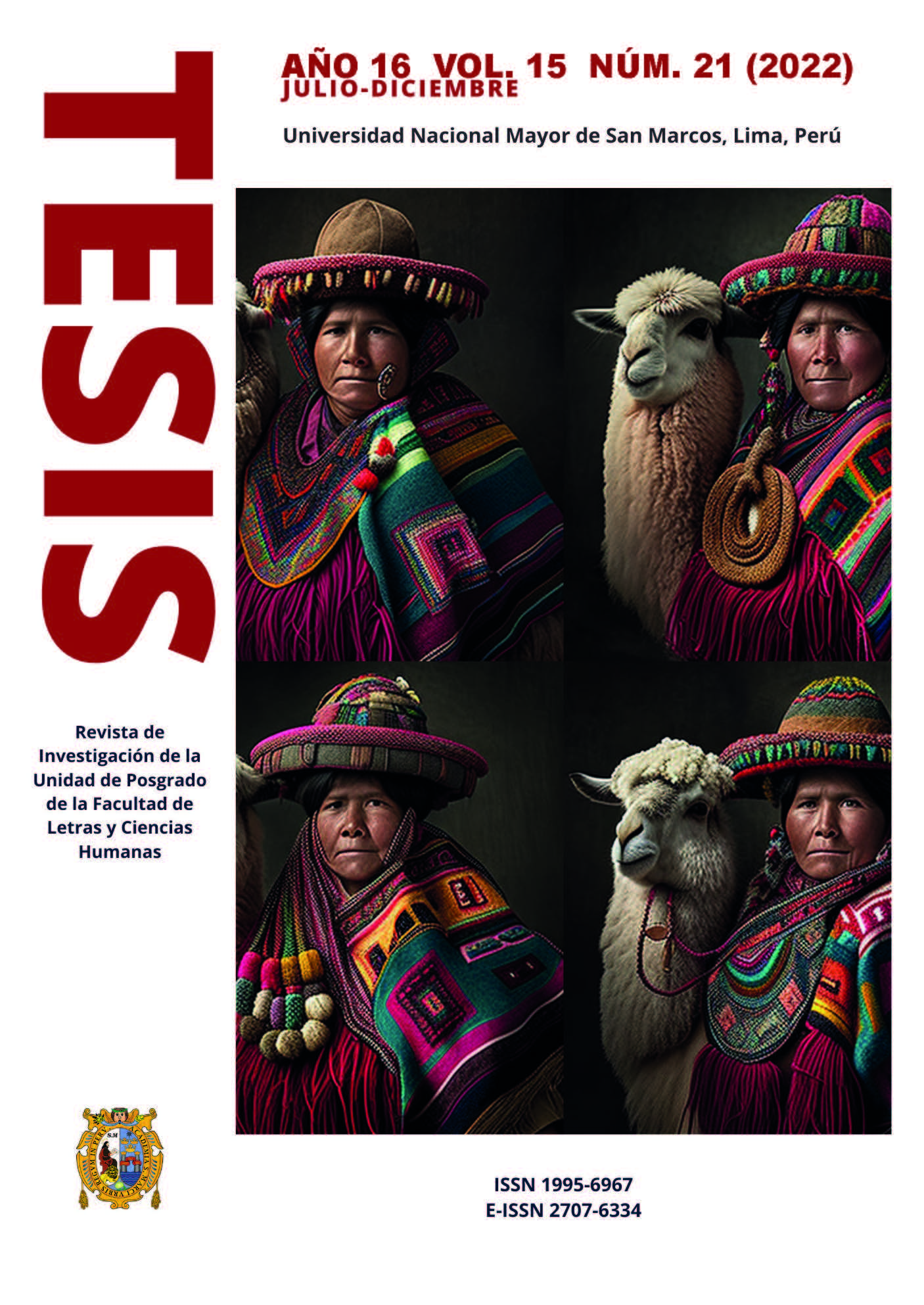Debate and validity of the concept of alienation in the discussion of ontology, politics, ideology and man in relation to contemporary political philosophy
DOI:
https://doi.org/10.15381/tesis.v15i21.24353Keywords:
alienation, man, political philosophy, self-development, individual, overcoming, liberation, emancipation, capitalist societies, means of production, emergent being, humanismAbstract
This thesis aims to show the validity, consider new readings and perspectives on the meaning, concept of the phenomenon of alienation in the human being. Starting from the position of man as a human species in nature and the society where he lives. What a novelty it may have to worry about it, we can say that anthropology deals with it, this would be, in my opinion, limiting the problem to a field in which alienation is not only manifested. It is rather to be able to diversify the areas where the subject to be treated is immersed, from the approach of philosophy as the totalizing axis of human experiences and knowledge. That is why the need to resort to the classics that have addressed the subject, the research that has been done and the debates that the term alienation will generate in contemporary political philosophy, it is possible to talk about it in today's societies, how deep and relevance must have in man.
Likewise, to consolidate my research criteria and the analysis that I develop on the genealogy, ontological, political, ideological and human discussion on the conception that I try to support. Which is the validity of the sense of alienation in my search and philosophical contribution, it is committed to the generic being of man, with his history and with his liberation. The possibility of considering this issue again is what interests me, seeking the self-realization, overcoming and emancipation of the human being, as a precarious, weak subject and who finds himself as an emerging being in constant creation, development and affirmation of his gender. It is man who builds, creates and forges his destiny, his material and spiritual development. But this has been alienated, alienated and subjected by societies where there is a division of labor and private ownership of the means of production. It is there where the challenge of returning to the theory of the praxis of the revolution is assumed.
References
Althusser. L (1974). La revolución teórica de Marx. (8.ª ed.). Siglo XXI.
Bermudo Ávila, J. (2015). Marx. Del ágora al mercado. Bonalletra Alcompas.
Elster, J. (1992). Una introducción a Karl Marx. Siglo Veintiuno Editores.
Laclau, E. y Mouffe, C. (2004). Hegemonía y estrategia socialista. Hacia una radicalización de la democracia. Fondo de Cultura Económica.
Lukács, G. (2013). Ontología del ser social: la alienación. Ediciones Herramienta.
Marcuse, H (1970). Los manuscritos económicos-filosóficos de Marx. Ideas y Valores, 35, 36 y 37.
Marx, K. (1980). Manuscritos de economía y filosofía. Alianza Editorial.
Musto, M. (2015). De regreso a Marx. Nuevas lecturas y vigencia en el mundo actual. Octubre Editorial.
Schaff, A. (1979). Alienación y cosificación. En La alienación como fenómeno social. Grijalbo.
Žižek, S. (2003). El sublime objeto de la ideología. (1.ª ed.). Siglo XXI Editores.
Downloads
Published
Issue
Section
License
Copyright (c) 2023 Jair Andre Mateu Hurtado

This work is licensed under a Creative Commons Attribution 4.0 International License.
THE AUTHORS RETAIN THEIR RIGHTS:
(a) The authors retain their trademark and patent rights, and also on any process or procedure described in the article.
(b) The authors retain the right to share, copy, distribute, execute and publicly communicate the article published in Tesis (Lima) (in example, depositing the article in an institutional repository or publish it in a book), with recognition of its initial publication in the Tesis (Lima).
(c) The authors retain the right to make a later publication of their work, to use the article or any part of it (for example: a compilation of their works, notes for conferences, thesis, or for a book), provided that they indicate the source of publication (authors of the work, magazine, volume, number and date).














